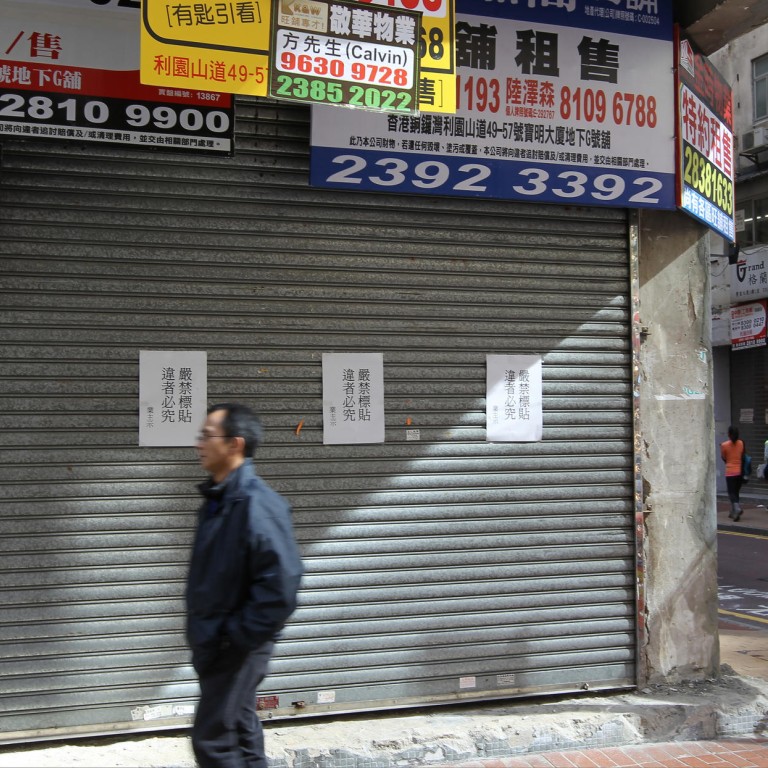
Empty shops on the up in Causeway Bay as high rent drives out business
Only luxury brands or jewellery shops are able to afford the rents that landlords are asking for, according to property consultancy CBRE
Causeway Bay continued to lure its share of shoppers over Christmas and the New Year, but beneath the lights and decorations all was not well for Hong Kong retailers.
Data from the Hong Kong Tourism Board shows visitor arrivals in Hong Kong continue to increase. In November alone there were 4.58 million visitors to the city, up 8.6 per cent year on year. It is a safe bet that a fair number of those visitors made their way to Causeway Bay and other shopping precincts.
But, despite the traffic, an increasing number of shops in areas such as Causeway Bay and Tsim Sha Tsui were vacant or were occupied on short-term leases over the holiday season.
A spot check by the showed that nine of the 53 street-level stores in Percival Street in Causeway Bay are vacant or being leased on short-term contracts, despite the street's proximity to Times Square and Russell Street, the most expensive shopping street in the world.
The vacancy problem is even more serious on Foo Ming Street, where half of its 10 shops are vacant or leased on short-term contracts. Pak Sha Road and Lee Garden Road are in a similar situation.
"Vacancy rates have increased since the fourth quarter of 2013 and it's particularly obvious on second-tier shopping streets," said Joe Lin, senior director of retail services at property consultancy CBRE. Top-tier shopping streets did not have the same problem, he added.
Vacancies were also to be found in Tsim Sha Tsui's Cameron Road and Carnarvon Road, he said, but the problem was most acute in Causeway Bay, where rents have risen sharply over the last few years.
"The shops are vacant because owners are being aggressive about achieving higher rents that only luxury brands or jewellery shops are able to afford," Lin said.
"Previously, when retail sales were growing strongly, luxury brands might have considered renting a shop there. But they have slowed their expansion now and would consider expanding only in the most prime locations."
Kenneth Yau, senior district sales director at agency Centaline, said in recent months some shop owners had been willing to accept lower rents in order to secure tenants.
"Initially they were not willing to cut asking rents for shops on Hong Kong Island. Then, after hard bargaining, they lowered their rents 20 to 30 per cent, but even this did not secure tenants. Now there are more shops standing empty, which has increased the bargaining power of tenants."
Lease renewals, which once resulted in rent increases of up to 80 per cent, were now leading to more modest increases, of 20 to 25 per cent, CBRE found in a survey.
"We believe rents of second-tier shopping streets will drop more than 10 per cent this year, while rents in top-tier locations will stay firm or rise by only about 5 per cent," Lin said.
As long as landlords keep to such adjustments of rents, vacancy rates could fall in the second quarter of this year, he said.
"Retailers focused on selling mid-range products will be more active this year, as mainland tourists have adjusted their spending habits to buy these kinds of products," he said.

